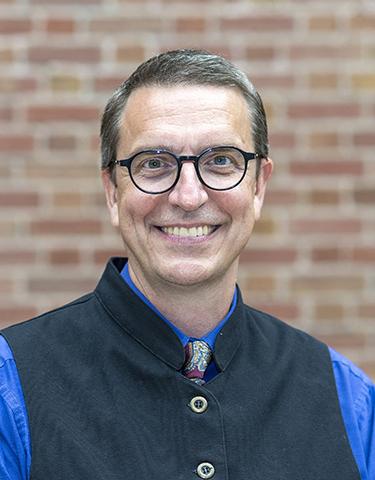Education
- B.A., University of Wisconsin-Milwaukee, May 1994
- M.A., Wichita State University, May 1998
- Ph.D., University of Wisconsin-Milwaukee, May 2011
Background
As an anthropologist, I have spent the majority of my academic and professional career researching and working in the field. In the early 1990s, as a graduate of UW-Milwaukee’s Anthropology program, I became an employee of the Great Lakes Archaeological Research Center (G.L.A.R.C., Milwaukee, Wisconsin); I joined a field crew studying the Milwaukee County Pauper Cemetery - situated along the southern border of the county grounds. This experience exposed me to the work of bioarchaeologists and the role that forensics plays in the identification and preservation of biological remains.
In the late 1990s, while pursuing a Master’s Degree at Wichita State University (WSU, Wichita, Kansas) I worked with the Office of the City Archaeologist. My work with office personnel helped to reconstruct the history of land use along Kansas Highway 54 - a transportation corridor that was slated for expansion and commercial development. As I surveyed the project area, I became fascinated by the history of mid-nineteenth century agricultural life. The artifacts that our field crew recovered animated this history and provided local historians with an economic understanding of Euro-American settlement for this period.
It was at Wichita State University that I began to study the biological nature of nineteenth century settler communities, looking at what additional knowledge could be gathered from the vital statistics of historic cemetery groups.
After completing my degree, I moved to Connecticut where I worked as a contract archaeologist. The municipal projects that I was involved in, introduced me to a different kind of frontier struggle - in this case relating to the history of early maritime communities along the northeastern American seaboard. My work also helped me to understand the role that state and federal law plays in the preservation of historic cultural resources.
In the fall of 2000, I returned to UW-Milwaukee to complete my doctoral degree in Anthropology. My hope was to use both my professional field experiences and my knowledge of the disciple to introduce a new generation of students to anthropology. The research that was part of my degree completion allowed me the chance to study both the archaeological and biological qualities of life in the Wisconsin frontier.
I joined the instructional team at WLC in the 2006-2007 academic year. As an adjunct, and later as a part-time employee, I grew in my knowledge of the university’s academic philosophies and ministerial goals. These academic and Biblical aims have come to embody much of what I do at Wisconsin Lutheran College.
In 2008, I formally joined the faculty, where I have been pleased to continue my research interest in historic and modern demography and health.
Teaching
- ANT 101 - Biological Anthropology
- ANT 103 - Archaeology
- ANT 210 - Forensic Anthropology
- ANT 311 - Primatology
Research Interests
My current research at Wisconsin Lutheran College is designed to expose students to the field methods and practices of archaeologists, biologists and anthropologists. Lecture and laboratory topics are organized in such a way as to prepare students for a variety of professional opportunities in cultural resource management, museum studies, primate conservation, and forensics.
Scholarly Works
Select Publications
2020 Anatomical and Biochemical Evidence for Treponema pallidum in a 19th to Early Twentieth Century Skeletal Cadaver. Forensic Science, Medicine and Pathology (16)3:557-561.
2015 Environment, Diet, and Craniofacial Development: A Study of Mixed Subsistence Strategies in the Great Lakes Watershed, AD 900-1600. International Journal of Humanities and Social Science (5)9: 29-45.
2015 Milwaukee’s Early Irish and the Role of the Church in Diasporic Urban American Settlement and Assimilation, 1890-1922. E-Keltoi 1:125-146.
1999 Fort Trumbull: Ramparts, Sonar and Subs. New London, Connecticut: The New London Development Commission.
1997 Identity, Self in Context: 67214, Wichita, Kansas. Lambda Alpha Journal. 27:45-58.
Professional Memberships
- 2011-Present: Wisconsin Archaeological Survey
- 2011-Present: Wisconsin Lutheran College’s Institutional Animal Care and USE Committee (IACUC)
- 2011-Present: Member, Register of Professional Archaeologists, Baltimore, Maryland.
- 2010-Present: American Anthropological Association
- 2013-2015: The General Anthropology Division of the American Anthropological Association
- 2010-2014: The Archaeological Division of the American Anthropological Association
- 2010-2014: Biological Anthropology Section of the American Anthropological Association


 Anthropology
Associate Professor
Anthropology
Associate Professor